Tag Archive for: leadership
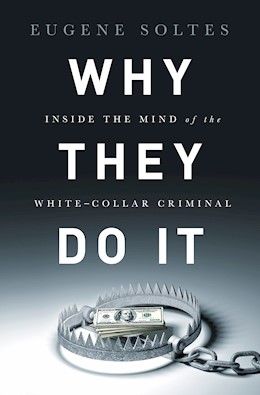
Never Black and White: Eugene Soltes Exposes the Gray
Blog White collar criminals typically conjure images of dark boardrooms, wealthy conspirators and syndicated, international crime rings. Yet, in a new book, Eugene Soltes shows white collar crime is less a cause of pernicious plots and more a product of a lack of focus, proximity and context.
White collar criminals typically conjure images of dark boardrooms, wealthy conspirators and syndicated, international crime rings. Yet, in a new book, Eugene Soltes shows white collar crime is less a cause of pernicious plots and more a product of a lack of focus, proximity and context.
What distinguishes Why They Do It from others on the subject is Soltes’ extensive use of almost 50 interviews with those convicted of white collar crimes- which he defines as individuals in high social standing who committed crimes while doing business. The main takeaway is that corporate leaders are more or less normal people, who are as susceptible to the same conflicts of interest and ability to rationalize decisions made in the moment as the rest of us. By virtue of their position, however, their decisions can do harm not only to themselves but also all with whom they do business.

Internal Reporting: Praising leaders for identifying issues
Blog Internal reporting is one of the quickest ways employees can alert relevant organizational- and governmental- contacts that something is amiss. While extensive research shows that a major impediment to doing so is fear of retaliation, new research from ES collaborator David Mayer and others demonstrates that for organizational leadership, speaking up is an asset while keeping quiet about ethical lapses is viewed as detrimental.
Internal reporting is one of the quickest ways employees can alert relevant organizational- and governmental- contacts that something is amiss. While extensive research shows that a major impediment to doing so is fear of retaliation, new research from ES collaborator David Mayer and others demonstrates that for organizational leadership, speaking up is an asset while keeping quiet about ethical lapses is viewed as detrimental.
The study, “When are Do-Gooders Treated Badly? Legitimate Power, Role Expectations, and Reactions to Moral Objection in Organizations,” [PDF] to be published in the Journal of Applied Psychology, identifies important implications for both people and organizations.
Professionalism and Ethical Leadership From General Counsel’s Suite
Blog![]() Among the active debate among compliance professionals, lawyers, and commentators about the proper role of compliance within a corporate hierarchy, there is an emerging consensus that lawyers have become the “loophole finders” and that compliance must step in to protect the firm’s integrity and ethics.
Among the active debate among compliance professionals, lawyers, and commentators about the proper role of compliance within a corporate hierarchy, there is an emerging consensus that lawyers have become the “loophole finders” and that compliance must step in to protect the firm’s integrity and ethics.
Azish Filabi, CEO of Ethical Systems and Jim Lager, ES collaborator, have written a piece for Corporate Counsel that addresses this ongoing conversation. Read the piece on "Professionalism and Ethical Leadership From General Counsel’s Suite." >>
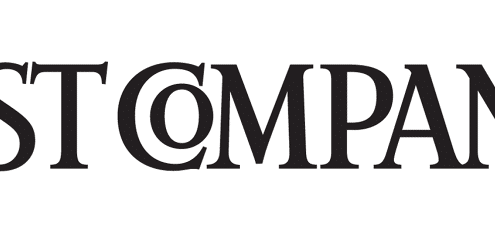
David Mayer Writes For Fast Company
Blog David Mayer, associate professor of management and organizations at the University of Michigan's Stephen M. Ross School of Business has recently signed on as a monthly contributor to Fast Company, writing about business ethics and leadership.
David Mayer, associate professor of management and organizations at the University of Michigan's Stephen M. Ross School of Business has recently signed on as a monthly contributor to Fast Company, writing about business ethics and leadership.
From their website: Fast Company "is the world's leading progressive business media brand, with a unique editorial focus on innovation in technology, ethical economics, leadership, and design."

Feeling All The Feels: The value of emotional culture at work
Blog You catch more flies with honey than you do with vinegar, says an old adage. In today’s economy, companies would be wise to continuously tend to their hives in order to maximize and motivate their worker bees.
You catch more flies with honey than you do with vinegar, says an old adage. In today’s economy, companies would be wise to continuously tend to their hives in order to maximize and motivate their worker bees.
A recent study published in Harvard Business Review examined the importance and benefits of fostering an “emotional culture” at work and its findings reinforce much of the buzz within behavioral and organizational psychology: that employees thrive in environments where joy, love and fun are the predominant cultures, as opposed to anger, fear and hostility.

Very Worrying: VW, Leadership and Ethical Culture
BlogGuest post from Dennis Gentilin of the National Australia Bank and author of the forthcoming book, “The Origins of Ethical Failures”
 As we all know, last week the car manufacturer Volkswagen admitted to installing software in over 11 million of their diesel engine cars that was designed to cheat emission tests. At worst, some commentators have suggested that Volkswagen are responsible for the premature death of people with respiratory conditions. At best, it is extraordinarily deceitful and unethical conduct.
As we all know, last week the car manufacturer Volkswagen admitted to installing software in over 11 million of their diesel engine cars that was designed to cheat emission tests. At worst, some commentators have suggested that Volkswagen are responsible for the premature death of people with respiratory conditions. At best, it is extraordinarily deceitful and unethical conduct.
It is highly unlikely that a scandal of this magnitude is the work of a handful of rogues. Rather it points to a systemic disrespect for principled conduct at numerous levels of the organization. No doubt the pending investigation will uncover failures in governance and compliance. However, as with all corporate scandals of this nature, my hypothesis is that at least one (or some) of the following five factors would have been at play:

Featured Collaborator for October: Dolly Chugh
Blog Interview with Dr. Dolly Chugh, Associate Professor in the Department of Management and Organizations, NYU Stern School of Business. [Find Dolly on Twitter]
Interview with Dr. Dolly Chugh, Associate Professor in the Department of Management and Organizations, NYU Stern School of Business. [Find Dolly on Twitter]
What are your main areas of research? How can people better be attuned to their bounded ethicality?
I have always been fascinated by the three dimensional reality of human behavior. That is, none of us are perfectly ethical all of the time, and it's that reality that I am most interested in. In what ways are we less ethical and less egalitarian than we intend to be? Under what conditions? Why? Those questions lie at the heart of my work on bounded ethicality, which refers to the systematic and ordinary psychological constraints on our ethical behavior.
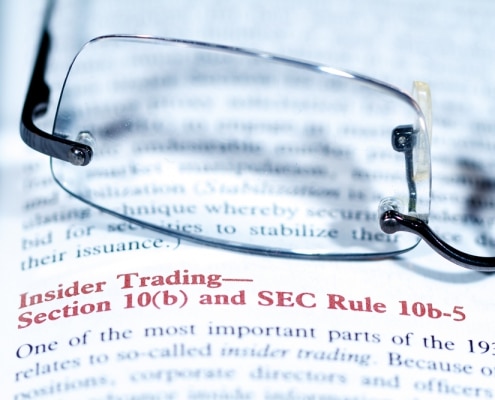
Opportunism as a Managerial Trait
Blog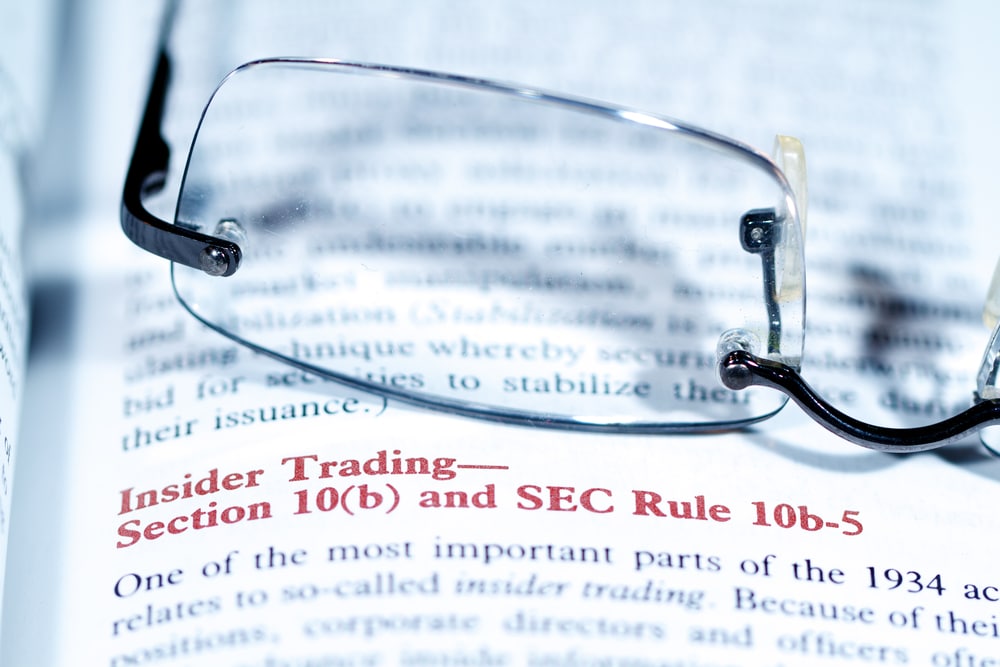 We ordinarily think of people as honest or dishonest, a broad-brush description which implicitly assumes that honesty is a personal characteristic that generalizes across decision domains. If so, a student who cheats on an exam is also more likely to shoplift or lie to a friend or partner. Does knowing that a corporate manager is opportunistic in one decision domain tell us much about whether the manager will misbehave in some other domain? In other words, are some managers just `bad apples’?
We ordinarily think of people as honest or dishonest, a broad-brush description which implicitly assumes that honesty is a personal characteristic that generalizes across decision domains. If so, a student who cheats on an exam is also more likely to shoplift or lie to a friend or partner. Does knowing that a corporate manager is opportunistic in one decision domain tell us much about whether the manager will misbehave in some other domain? In other words, are some managers just `bad apples’?
Recently, in the paper “Opportunism as a Managerial Trait: Predicting Insider Trading Profits and Misconduct” Usman Ali, Portoflio Manager at MIG Capital, and I study these questions by examining whether corporate managers who profit by insider trading in their firms’ stocks engage in other forms of misbehavior as well.
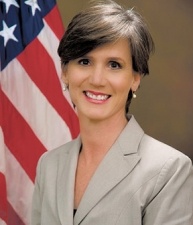
Did You Get the Memo? Confronting Corporate Wrongdoing
Blog After the financial crisis of 2008 and the current, ongoing instances of large fines levied against banks and other financial companies, many people continually bemoan why penalties have not also included jail time and prosecution of executives who have behaved unethically. The message has finally reached the highest levels of government and change is on the horizon.
After the financial crisis of 2008 and the current, ongoing instances of large fines levied against banks and other financial companies, many people continually bemoan why penalties have not also included jail time and prosecution of executives who have behaved unethically. The message has finally reached the highest levels of government and change is on the horizon.
In a speech at NYU Law last week, hosted by the school's Program on Corporate Compliance and Enforcement, Deputy Attorney General Sally Quillian Yates presented the memo covering a new Department of Justice initiative designed to fight corporate fraud and other misconduct by going after individuals who perpetrated the wrongdoing. In addition to punitive actions against an organization (what many see as a macro-level punishment that does little to deter misconduct on the micro, or personal, level), the DOJ will now turn its considerable resources to affecting change at the source, i.e. those that engage in personal malfeasance under the guise of doing their job.

Corruption, Trends and Predictions: An Interview with Richard Bistrong, Part 2
Blog Part two of our interview with Richard Bistrong, CEO of Front-Line Anti-Bribery LLC [read part 1]
Part two of our interview with Richard Bistrong, CEO of Front-Line Anti-Bribery LLC [read part 1]
How has corruption changed since you were prosecuted? Could someone get away with the same behavior now?
The FBI has tripled its investigatory resources, and the real teeth of international law enforcement cooperation, which I experienced as a covert cooperator in the US and UK, has significantly increased, becoming more sophisticated over the last 5 years, as we have seen in a number of global investigations.
My own getting caught should be a cautionary tale for others.
